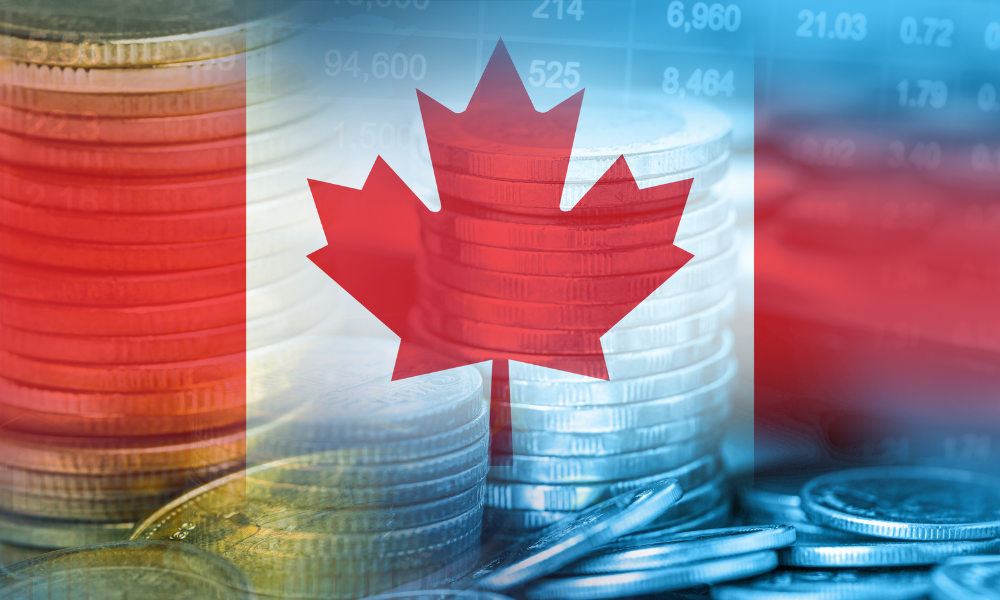Economist warns that the 25% tariffs may halt Canada's growth, weaken its currency, and spark trade tensions

Donald Trump's proposed tariffs could have significant implications for the Canadian economy, according to economist James Orlando.
Speaking with BNN Bloomberg, Orlando warned that the suggested measures, including a 25 percent tariff on all Canadian products, could lead to zero economic growth and higher inflation in Canada if implemented without retaliation.
On Monday, Bloomberg News reported that Trump, on his Truth Social platform, pledged 25 percent tariffs on goods from Canada and Mexico, as well as a 10 percent tariff on Chinese products.
According to CTV News, Prime Minister Justin Trudeau and his government are expected to address the issue during a meeting with provincial premiers on Wednesday.
Orlando explained that without retaliation, these tariffs could stall Canadian economic growth entirely.
“If 25 percent tariffs come on Canada on (a) blanket scale, and we don’t have retaliation, then we’re effectively going to get just zero economic growth in Canada with higher inflation,” he said.
If retaliatory measures are introduced, Orlando suggested the situation could worsen. “Now, if there’s retaliation, I haven’t run that scenario, but that just pushes you down even further into negative territory,” he said.
The Bank of Canada indicated that it would factor the tariffs into its economic forecasts if they materialised, Reuters reported. Orlando added that in such a scenario, the Bank might have to lower interest rates to support the economy.
The Canadian dollar dropped to a four-year low, trading at around 71 cents US on Tuesday, following Trump’s announcement. Bloomberg News noted a broad rise in the US dollar, further pressuring the Canadian currency.
Orlando attributed the dollar's weakness to a combination of factors, including Canada’s slower economic growth relative to the US. The threat of tariffs exacerbated these pressures.
“Immediately when everyone got their messages saying that President Trump’s looking to impose (a) 25 percent tariff on Canada, that just adds to the risk to the Canadian economy,” he stated.
He cautioned that retaliation could further weaken the Canadian dollar, possibly pushing it below the 70-cent threshold. Continued trade tensions would likely sustain this downward pressure.
Orlando pointed to several key Canadian industries that could be significantly affected by a 25 percent tariff. “Canada exports around 77 percent of our exports to the United States. And energy is obviously the biggest one… in terms of volume for Canada shipping to United States,” he said.
Other sectors, including autos, steel, and aluminum, were also identified as vulnerable, particularly given their prominence during previous trade disputes under Trump’s administration.
He noted that while Canada has increased exports to the US since the implementation of the United States-Mexico-Canada Agreement (USMCA), this growth has also heightened exposure to potential trade disruptions.
“These sectors that we’re talking about… are exposed to a greater extent than they were before because the trade ties have increased over the last few years,” Orlando added.
Orlando suggested that the proposed tariffs align with Trump’s typical negotiation strategy, describing them as a tool to gain concessions.
“I don’t think that it’s necessarily set in stone that a blanket 25 percent tariff would be implemented across all industries in Canada,” he said.
Instead, he sees the tariffs as a starting point for broader negotiations, particularly with USMCA up for renegotiation in 2026.
Orlando also identified potential areas of focus for upcoming trade talks, such as the digital services tax and Canada’s dairy lobby.
“It’ll be interesting to see where the focus ends up going as things progress,” he said.
The rhetoric around these proposed measures underscores the challenges facing Canada as trade relations with the US evolve.



